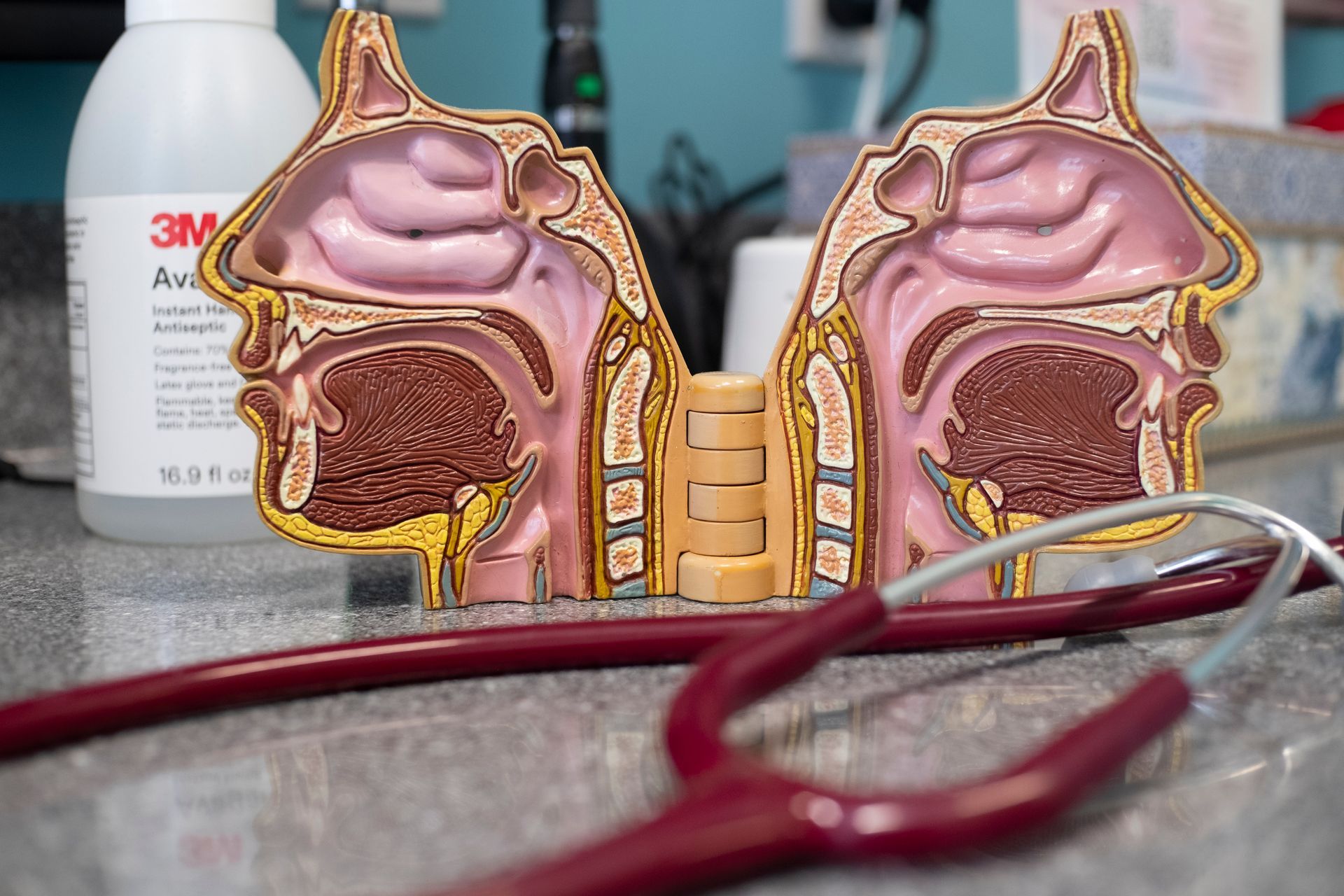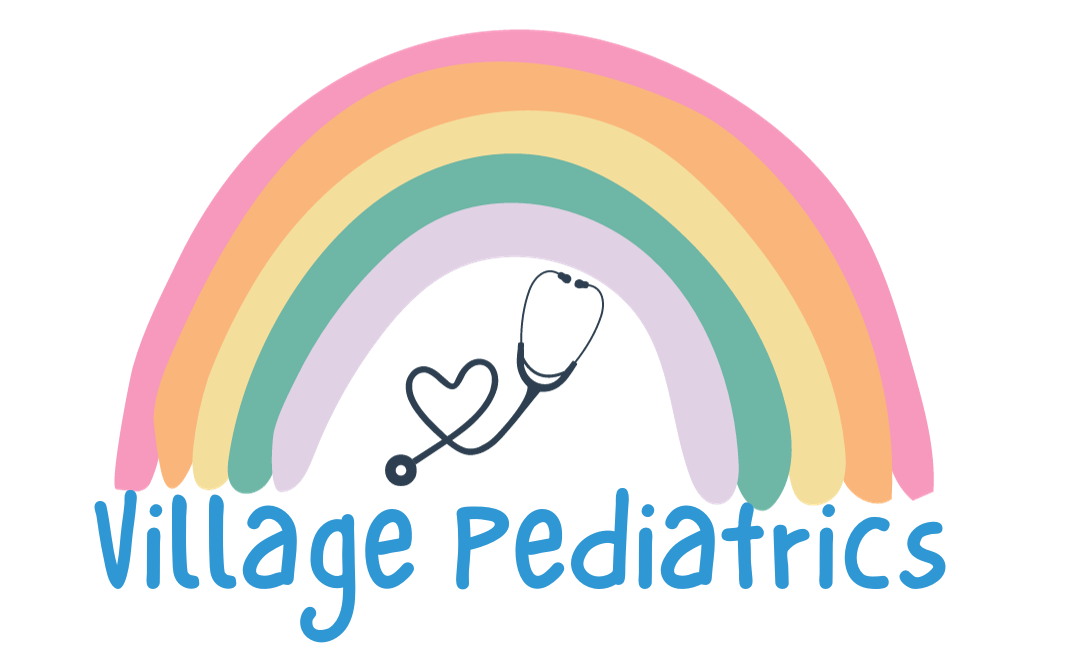Policies
Appointments
Use the Patient Portal
NO URGENT ISSUES PLEASE.
You can send an appointment request thru the MyKidsChart patient portal. Please let us know the type of appointment you need (well, non-urgent sick, medical recheck, medication follow up or behavioral/mental health evaluation.)
In your message please include the physician you would like to see and several day/time options.
Allow three business days for us to return your message.
Mental/Behavioral Health Visits
The physicians ask that you complete specific CHADIS questionnaires prior to booking these appointments- the surveys will be assigned to your CHADIS account by our reception team/physicians based on your specific concerns.
The physicians need to review your responses to better determine the type and length of appointment needed, or if a referral to a mental health care provider is indicated.
Once all forms (parent/caregiver and/or teacher) are received we will call you to set up a visit.

Other Policies
Antibiotic Policy
We work hard to not overuse antibiotics.
We educate families on appropriate use of antibiotics, but follow evidence-based guidelines and don’t automatically treat ear pain or a green snotty nose with antibiotics.
We do not routinely prescribe antibiotics over the phone as we do not believe that is good medicine. We will prescribe an antibiotic when we believe it is an appropriate treatment.
Appointment Policy
Everyone's Time is Equally Valuable.
We ask that you arrive 5 minutes before your scheduled appointment time. We understand sometimes things happen beyond your control that may cause you to be late. However, we reserve the right to ask you to reschedule if you arrive late for your appointment.
Our practice makes every effort to run on time with appointments, as we believe everyone’s time is equally valuable.
Upcoming Appointments Via Phone/Text Message/Email
Missed Appointments: Broken appointments represent a cost to us, to you, and to other patients who could have been seen in the time set aside for you. We reserve the right to charge a fee for canceled or missed appointments. We request 24 hours notice for cancellation of appointments.
A fee may be charged for a second missed appointment.
Technology Policy
Efficiency through the use of technology
You will be encouraged to consult our website, register for and use our patient portal, and effectively use automated reminders for appointments and for routine care/immunizations that are due.
Divorced/Separated Parents Policy
At Village Pediatrics LLC, our goal is to partner with parents for healthy kids. We appreciate that child(ren) with divorced or separated parents may present with unique challenges, and we require parents to work with us through those challenges. This policy was developed to avoid any misunderstandings going forward.
- The providers, medical assistants, nurses, office, and billing staff will not be put in the middle of domestic issues or disagreements over the phone or in the office.
- Please make decisions regarding appointments, vaccinations, and/or any office procedures prior to visiting our practice.
- Only in situations where there is a documented court order will one parent be denied access to the minor’s health record or visits at the office. Village Pediatrics LLC must have a copy of the court order on file in the minor’s electronic medical record.
- It is both parents’ responsibility to communicate with each other about the patient’s care, office visit dates, and any other pertinent information relevant to the patient. It is not the responsibility of Village Pediatrics LLC to communicate visit information to each custodial parent separately.
- Our providers will not call the other parent prior to an appointment to gain consent regarding appointments scheduled, nor will they take a call from the other parent following an appointment. We will not restrict either parent’s involvement in the patient’s care unless authorized by law; however, we also will not duplicate information delivery unless directed by law.
- We will send reminders of upcoming appointments by text and/or phone call. We can send this reminder to only the primary phone number listed on the patient’s account. The parent or guardian that completes and signs our new patient packet will be the chart guarantor and therefore receive these reminders.
- All copays, deductibles, coinsurances, and any other fees are due at the time of the visit and are the responsibility of the parent accompanying the patient to the appointment. If there is an arrangement between the parents about split payment, it is the responsibility of the parent attending the appointment to collect from the other parent.
- We require a single active credit card to be on file at all times. It should decided by your family agreement whose card is left on file, we are unable to have multiple cards on file for one family. If you need a detailed receipt, we would be more than happy to provide you this at any time. Please request via our patient portal in our billing tab.
Should the issues that come between parents become disruptive to our practice or there is non-compliance with this policy, we reserve the right to discharge the family from our practice.
Financial Policy
We practice medicine according to accepted medical standards and Academy of Pediatric recommendations. We cannot tailor care to only what is covered by your insurance. It is up to you to understand how your insurance works, including deductibles and co-insurance, and to provide up-to-date insurance information at every visit. Please read our Financial Policy for more information regarding our billing and payment policies.
Vaccine Policy
We recognize that there is much anti-vaccine rhetoric in the press today that has heightened parents’ concerns regarding immunizations. However, there is no scientific link between vaccines and autism or the other issues claimed by the anti-vaccine crowd. Thus, we feel it necessary to take a firm stand on the vaccine policies in our practice.
- We firmly believe in the effectiveness of vaccines to prevent serious illness and to save lives.
- We firmly believe in the safety of our vaccines.
- We firmly believe that all children and young adults should receive all of the recommended vaccines according to the schedule published by the Centers for Disease Control and Prevention (CDC) and the American Academy of Pediatrics (AAP).
- We firmly believe, based on all available literature, evidence, and current studies, that vaccines do not cause autism or other developmental disabilities.
- We firmly believe that thimerosal, a preservative that has been in vaccines for decades and remains in some vaccines, does not cause autism or other developmental disabilities.
- We firmly believe that vaccinating children and young adults may be the single most important health promoting intervention we perform as health care providers, and that you can support as parents/caregivers.
The recommended vaccines and the schedule of administration are the results of years and years of scientific study and data-gathering on millions of children by thousands of our brightest scientists and physicians.
The vaccine campaign is truly a victim of its own success. It is precisely because vaccines are so effective at preventing illness that we are even discussing whether or not they should be given. Because of vaccines, many of you have never seen a child with polio, tetanus, whooping cough, bacterial meningitis, or even chickenpox, or known a friend or family member whose child died of one of these diseases. Such success can make us complacent or even lazy about vaccinating. But such an attitude, if it becomes widespread, can only lead to tragic results.
Over the past several years, many people in Europe have chosen not to vaccinate their children with the MMR (measles, mumps, rubella) vaccine after publication of an unfounded suspicion (later retracted) that the vaccine caused autism. As a result of under-immunization, there have been small outbreaks of measles and several deaths from complications of measles in Europe over the past several years. The United States experienced a record number of measles cases during 2019, with 1282 cases from 31 states reported to CDC's National Center for Immunization and Respiratory Diseases (NCIRD). This is the greatest number of cases since measles elimination was documented in the U.S. in 2000.
Furthermore, we firmly believe that by not vaccinating your child, you are taking selfish advantage of thousands of others who do vaccinate their children, which decreases the likelihood that a child will contract one of these diseases. We feel such an attitude to be self-centered and unacceptable. Even delaying or “breaking up the vaccines” to give one or two at a time over additional visits goes against expert recommendations, is not supported by any scientific data, can lead to unnecessary delays and errors, and can put your child, other children, and adults at risk for serious illness (or even death). It is therefore against our medical advice as professionals at Village Pediatrics.
As medical professionals, we feel very strongly that vaccinating children on schedule with currently available vaccines is absolutely the right thing to do for all children and young adults. We are making you aware of these facts not to scare you or coerce you, but to emphasize the importance of vaccinating your child. We are more than willing to discuss any questions you may have about vaccines, but do require all new patients to our practice to adhere to the vaccination schedule endorsed by the American Academy of Pediatrics (AAP) unless they meet the following criteria:
- Vaccine is unavailable at an office visit.
- Severe allergy to one of the components of the vaccine. Minor allergies may require observation after vaccination, but the vaccine may be given.
- Immune suppression in the patient or caregiver that precludes vaccination.
- Fever or significant illness within the previous 24 hours prior to scheduled vaccine. It is recommended to vaccinate with mild illnesses.
- Inability to vaccinate with a live virus due to another live virus vaccine being given in the previous 28 days.
- Chronic high dose steroid of at least 2 weeks duration use might exclude certain vaccines.
- A child is past the age for which the vaccine is approved for use.
- Chronic illness that precludes vaccination.
What if we've missed doses of vaccine, but are willing to vaccinate?
If a newborn did not get the Hepatitis B vaccine in the hospital for whatever reason, we will give it at the first office visit and continue on schedule.
If a child transfers in to our office and requires a catch-up schedule, we will catch up according to the CDC catch up schedule.
Too Many Too Soon?
For those who are worried that there are too many vaccines too soon and they will overwhelm the immune system: This fear is simply unfounded. The schedule has been shown to be safe. We are exposed to a few hundred thousand viruses and bacteria each minute through normal breathing. Children receive about 130 antigens from vaccines. This is not a significant number compared to the millions upon millions of viral and bacterial antigens that enter a child’s lungs daily. The number of antigens has dropped over the same years that the number of illnesses being prevented has increased.
Law of unintended consequences: Separating vaccines also requires more visits to our office, which can expose children to more illness and unnecessarily increases the cost of healthcare.
Stress: Studies have shown that the first injection causes a stress response (measured by elevated heart rate, blood pressure, cortisol levels, cry), but subsequent injections given at the same time do not increase as significantly the stress when compared to returning on different days to get further injections. So children with delayed schedules are actually subjected to more stress.
Perspective: We are more likely to suffer death from car accidents than to have an adverse reaction to a vaccine.
As Paul Offit summarized in Addressing Parents’ Concerns: Do Multiple Vaccines Overwhelm or Weaken the Infant’s Immune System?: Current studies do not support the hypothesis that multiple vaccines overwhelm, weaken, or “use up” the immune system. On the contrary, young infants have an enormous capacity to respond to multiple vaccines, as well as to the many other challenges present in the environment. By providing protection against a number of bacterial and viral pathogens, vaccines prevent the “weakening” of the immune system and consequent secondary bacterial infections occasionally caused by natural infection.

